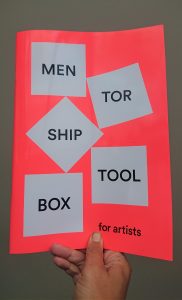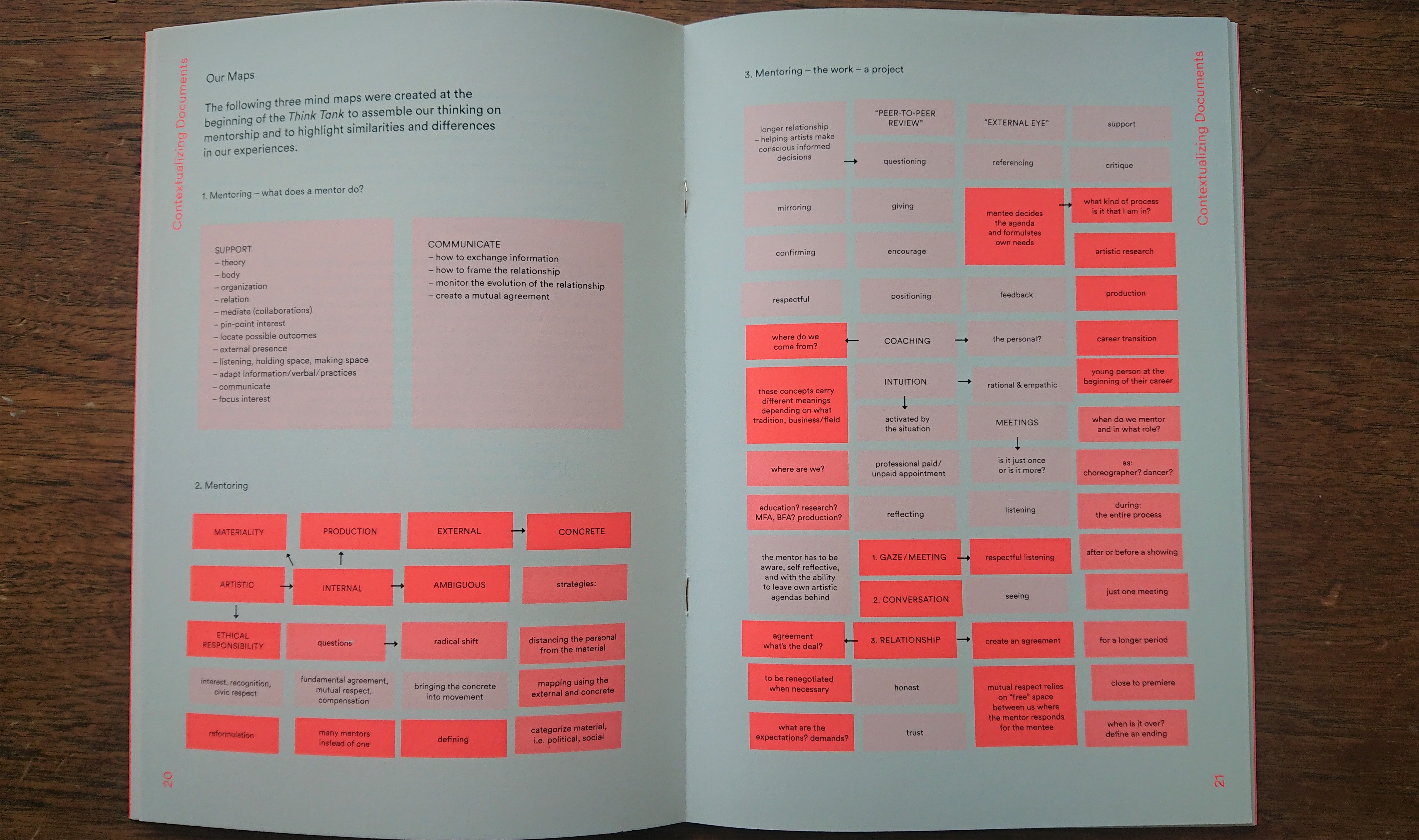What role does mentorship play in an artistic process? What is the specific interest of the artist being mentored? How does a mentor mediate the plethora of questions and concerns in an artist’s process with their knowledge, body, and experience? How do artists mentor each other? What type of mentorship is needed and how does it change as a process deepens? What are the differences between mentoring, coaching, and supervising? How is artistic mentorship different from mentorship in other fields?
.

.
In 2018 Milvus Artistic Research Center (MARC), Kivik & Knislinge, and SITE, Stockholm, initiated a four-part Think Tank on the topic of artistic mentorship based on a mutual interest and the needs expressed by artists working with both organizations. The project took place at MARC, SITE, and Wanås Konst with two days in each location during 2018, and ended with a three-day final meeting at SITE in spring 2019. Through the Think Tank we addressed the role that mentorship plays in artistic processes with mentors affiliated with both organizations. The outcome was tools for mentoring artists in all stages of their work as well as a deepened understanding of the role mentorship plays in the fields of dance and choreography.
.
As the authors of the Mentorship Toolbox, we are artists, dancers, researchers, writers, choreographers, producers, teachers, and directors, whose backgrounds contribute to the following publication. Our research focuses on defining and developing strategies for mentoring in artistic contexts. Through the Think Tank we shared our experiences of mentoring and being mentored, discussing techniques of listening, asking questions, planning sessions, compensation, how to use and agree on terms, and engaged in a rethinking of the typical hierarchies associated with mentorship.
.
The Mentorship Toolbox includes tools for mentors, mentees, and for those who do not know. We have created activities intended to initiate and define relationships, agitate creative processes, and illuminate the artistic needs of the mentee. We have also included examples, personal stories, and documents to support the tools. The toolbox is intended to be changed, rearranged, modified, and developed through each specific mentoring situation. It is a practical instrument to widen thinking before, during, and around artistic mentorship.
.
Download the Mentorship Toolbox here.
